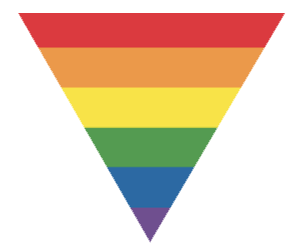Written by Lindsay Abrames
The holiday season is often marked with celebration and good cheer. However, the reality of the holidays may be quite different if you are in recovery (especially early recovery) from alcohol and/or substances. It can be a difficult time of the year to remain abstinent, especially in a world where alcohol is glamourized and over-indulgence promoted as essential to deal with the broad spectrum of celebratory to stressed out holiday emotions. Therefore, as holiday festivities begin, it may be helpful to plan for your recovery given social pressures and expectations, or loneliness and grief that arises during the holidays.
Give yourself permission to prioritize and protect your sobriety.
Consider avoiding high-risk situations (people, places, things) that challenge your recovery goals. It is okay to make a brief appearance only to a gathering, or not to attend at all if you know alcohol and other substances will play a central role. Consider if the event is right for you at this point in your recovery – take an honest account of your ability to challenge any rationalizing thoughts or justification to drink or use in the presence of others’ consumption. It is not always realistic to “power through it” and safeguarding your recovery is important.
Plan ahead.
Have a pre-planned response or an exit plan rather than waiting until the moment you are triggered at a gathering. If you are comfortable, you can let the host of the gathering know that you do not plan to drink (i.e., you are driving, you have another event to attend) and thank them for not offering alcohol upfront if you think this approach may be helpful. You can bring your own non-alcoholic beverages and politely decline any drink offers. You do not owe anyone an explanation, so a simple “no thanks” is just fine. If others ask directly about your drinking, it can work to say you are focusing on yourself and your health.
Connect with your support system.
Schedule meetings with your therapist, meet up with your sponsor, and attend regular AA, NA, or Smart Recovery meetings to boost connection. Invite a peer or sober friend to accompany you to gatherings, or take a time-out from gatherings to contact them by phone if you need additional support.
Create new fun substance-free traditions.
You can re-write your own traditions, and change personal expectations and stories about how to celebrate the holidays. Children, family members, and friends can all enjoy and benefit from activities that do not prioritize the consumption of alcohol. Take initiative to plan Christmas movie nights, attend holiday markets, baking and cooking get-togethers, or craft-making. You can also give back by volunteering time in service of others at local food banks or shelters, spending time with elderly loved ones or helping out neighbours.
Practice self-care.
Feeling triggered is common, so be gentle with yourself. It can be comforting to create a coping kit of go-to self-care and self-soothing items for moments of stress, grief, and loneliness. Some examples can include scented candles and aromatherapy, teas and hot chocolate, cozy slippers and blankets, or art supplies. Schedule massages and other stress-relieving appointments you have been meaning to get to during the holidays. Basic nutrition, exercise, restorative rest, quiet time for gratitude, meditation, and reflection can all improve your overall well-being.
💜
If you or a loved one is in need of support this season, we are here for you.
613-701-7574 | info@ksrc.ca
